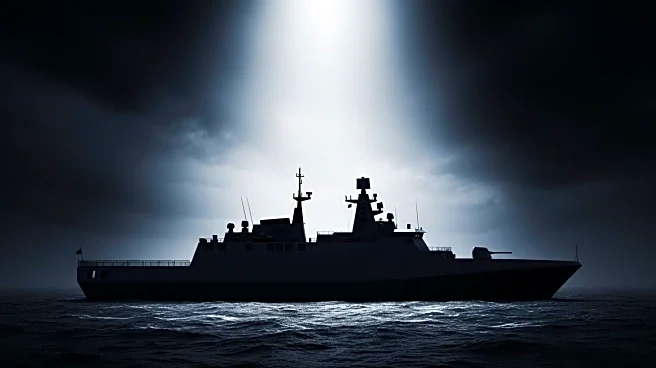What is the story about?
What's Happening?
The European Union is proposing to include companies that issue false flags in its sanctions against the shadow fleet supporting Russia's oil trade. The sanctions, part of the 19th package, aim to tighten restrictions on Russian oil and gas imports. The proposal targets companies in Saint Maarten, Aruba, and Curaçao that have organized false flags for tankers. The EU has already sanctioned over 500 tankers and plans to target an additional 120 vessels, focusing on those falsely claiming flags from these regions.
Why It's Important?
The move to include false flag issuers in sanctions reflects the EU's commitment to curbing Russia's energy trade amid geopolitical tensions. By targeting the shadow fleet, the EU aims to disrupt the flow of money supporting Russia's activities in Ukraine. The sanctions could impact global oil markets and shipping practices, as companies involved in false flag operations face increased scrutiny. The initiative may also prompt other regions to adopt similar measures, influencing international maritime regulations.
What's Next?
The EU nations must unanimously approve the expanded sanctions regime. If implemented, the sanctions could lead to increased enforcement actions against vessels operating under false flags. Shipping companies may need to reassess their compliance strategies to avoid penalties. The EU's actions could also encourage other countries to strengthen their maritime regulations, potentially leading to a global shift in how false flag operations are addressed.















